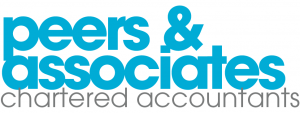It is important to understand exactly what a directors loan is and how it is treated or you could get yourself in a sticky situation!!
What is a directors loan? A directors loan is when you take more money out of the company than you put in, and it isn’t salary, dividend or an expense repayment. If the company makes loans to directors it must keep detailed records of these transactions. Such transactions are usually posted to what is known as the ‘director’s current account’ or the ‘director’s loan account’.
Both you and your company may have to pay tax on the loan depending on how much money is loaned to the director and when / how the loan is repayed.
1. If the loan is less than £5,000 during the whole of the financial year:
If the loan is repaid within 9 months and 1 day of the corporation tax accounting period then there are no tax implications for either the company or the director.
2. If the loan is above £5,000 at any point during the financial year:
The loan will need to be declared on a form P11D for the director and the company will need to pay Class 1A national insurance contributions.
The difference between the interest due on the loan based on the official interest rate and the interest paid to the company may be taxable on the director.
3. If the loan is repaid within 9 months and 1 day of the financial year end:
There are no additional tax implications for the company or director.
4. If the loan is not repaid within 9 months and 1 day of the financial year end:
The company will be required to pay 25% of the outstanding amount to HMRC as corporation tax. Interest will accrue on this amount until the corporation tax is paid or the loan is repaid. The company can reclaim the corporation tax once the loan has been repaid.
5. If the loan is written off:
Although the write off of a director’s loan may seem appealing it can be costly as there may be tax and national insurance implications for both the company and director as if the director has received additional remuneration in the year.
This information is provided for guidance only and should not be relied upon without the discussion with an advisor first.

